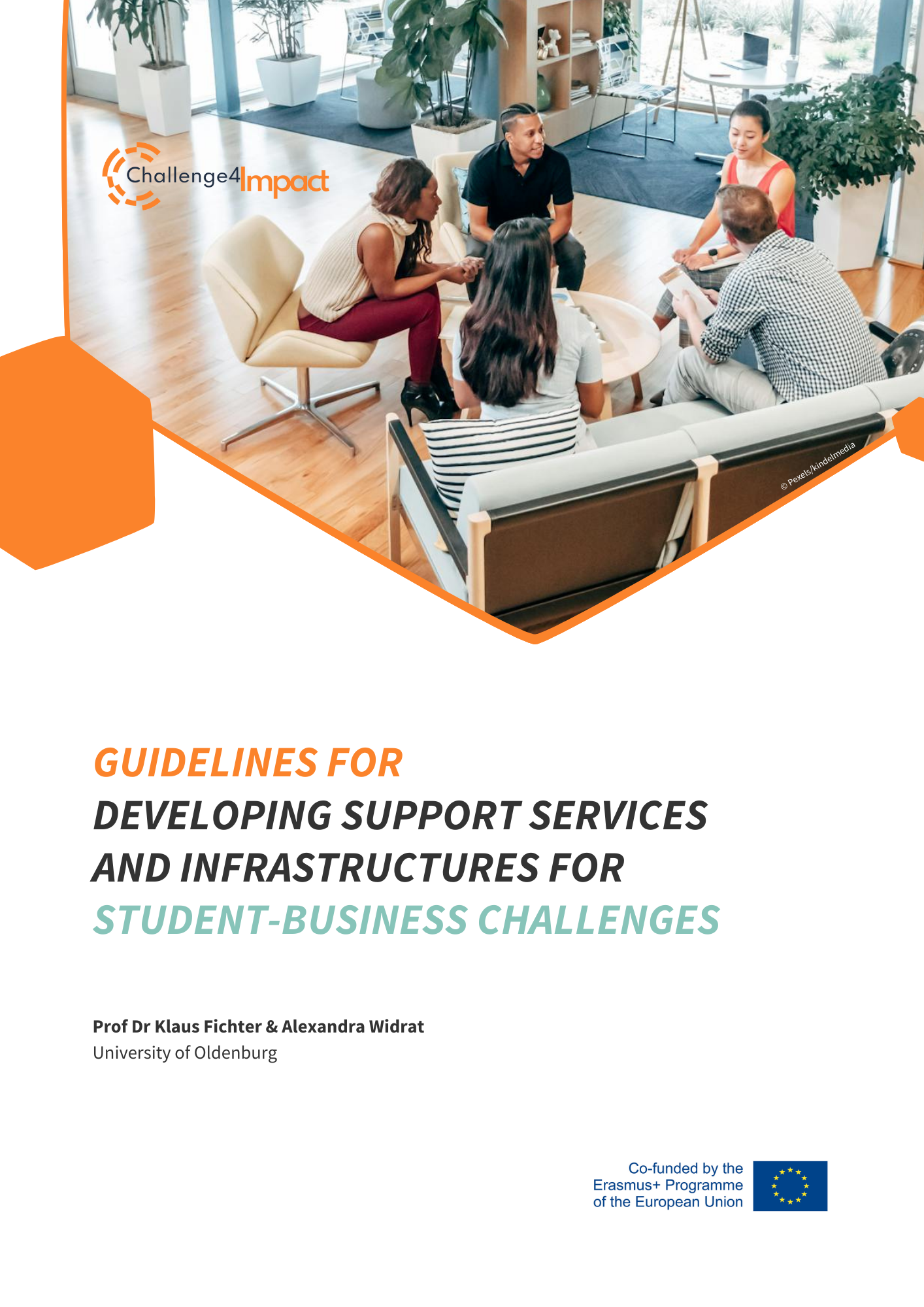
Guidelines for Developing Support Services and Infrastructures for Student-Business Challenges
The development of new curricula that are relevant to the changing needs of society goes hand-in-hand with advancing teaching and learning methodologies to engage university students in experiential learning and co-innovation processes with industry stakeholders. Given the involvement of external stakeholders such as business partners and the deep learning processes enabled, experiential learning formats such as student-business challenges are said to provide one of the best opportunities for students to aplly their theoretical knowledge outside the lecture hall. However, they are also the most difficult type of experiential learning to scale and often remain tailored to individual modules and programmes.
How can challenges in relation to institutionalising and scaling innovative teaching and learning formats such as student-business challenges be tackled? The guidelines provide insights into how to develop effective support systems and sustainable infrastrucutures for scaling student-business challenges. They serve higher education teachers, curriculum designers, transfer managers, and other professionals involved in realising experiential educational programmes and learning journeys using pedagogic approaches such as challenge-based learning (CBL).
Download our Guidelines here.

This website was carried out as part of the Challenge4Impact project. Challenge4Impact (Project Reference: 2021-1-DE01-KA220-HED-000032242) is funded by the Erasmus+/Cooperation Partnership Programme of the European Union.
The information and views set out in this report are those of the authors and do not necessarily reflect the official opinion of the European Union. Neither the European Union institutions and bodies nor any person acting on their behalf may be held responsible for the use which may be made of the information contained therein.
